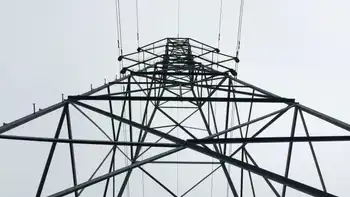Environmentalists, state quarrel over mercury rule
BOISE, IDAHO - When it comes to determining the future of coal-fired power plants in the state, everyone wants a say.
But who gets the first crack at it and who has the final authority?
Those are the questions state officials and environmentalists will hash out when the board of the Idaho Department of Environmental Quality meets to discuss the state's participation in a federal mercury emission program. Both the board and the governor ultimately will play a role in the decision, as will the Legislature. But a petition submitted by the Idaho Conservation League and several Magic Valley groups has the board taking the first step - something state officials are questioning.
"We don't know if the petition is legal," said Brad Hoaglun, spokesman for Gov. Jim Risch. "Can the board even make the decision - that's the question."
The citizens' organizations requested the DEQ board get the process rolling to keep the state out of the federal program n one that allows energy companies to buy and sell credits for mercury emissions from coal-fired power plants. Opting out of the federal program essentially prohibits the building of coal-fired power plants - like the facility originally proposed for Jerome County - in Idaho. Mercury has been linked to neurological disorders and proves particularly harmful to pregnant women and small children.
The state has to provide the U.S. Environmental Protection Agency with an answer by November. Otherwise, the federal government will enroll the state with or without Idaho's approval.
"Our concern is that this is the most timely mechanism for the board to deal with this," said Courtney Washburn with the conservation group.
Attorneys for DEQ and the governor's office aren't sure the board can act on the petition.
Last year, the DEQ began drafting a rule to join the federal program at the request of Gov. Dirk Kempthorne. At the time, Kempthorne commented that he didn't want to tie the hands of future administrations by opting out of the mercury program. The EPA, however, pulled its rule back for reconsideration from October 2005 until the end of May n forcing DEQ to begin its rule-making process anew under a different governor.
Washburn says the groups involved with the petition don't want to see a last-minute decision without sufficient public input.
The 2006 Legislature enacted a two-year moratorium on the building or permitting of coal-fired power plants in the state. Legislators also instructed an interim committee to update the state's 1982 energy plan.
The moratorium came under pressure from Magic Valley residents opposed to a 600-megawatt coal-fired power plant planned for Jerome County. Sempra Generation, the California-based energy company backing the plant, withdrew its plans but still intends to sell the rights to the facility.
Typically, the governor has to give his OK before the department can draft a temporary rule, like the one required on the mercury program, said Martin Bauer, with DEQ's air quality division. After the temporary rule goes out for public comment, it comes back before DEQ's board members, providing a system of checks and balances. Eventually, the Legislature approves the rule if it passes all the steps along the way.
But, the governor signs off on that first step, Hoaglun said. Risch plans to attend the DEQ board meeting June 22 in Coeur d'Alene.
"I'm sure there will be a dialogue," he said. "The board is certainly involved in the process."
DEQ's board comprises seven members, including two Magic Valley representatives: Randy MacMillan of Clear Springs Foods Inc., and Donald Chisholm, a private attorney in Burley. The governor appoints DEQ board members with the consent of the state Senate. Members serve four-year terms.
"It's certainly the province of the DEQ board to answer the question," said Bill Eddie, an attorney who helped draft the petition. "They decide on all the other air quality rules."
Related News

Feds to study using electricity to 'reduce or eliminate' fossil fuels
OTTAWA - The federal government wants to spend up to $300,000 on a study aimed at understanding whether existing electrical technologies can “reduce or eliminate” fossil fuels used for virtually every purpose other than generating electricity.
The proposal has caused consternation within the Saskatchewan government, which has spent months attacking federal policies it believes will harm the Western Canadian energy sector without meaningfully addressing climate change.
Procurement documents indicate the “Electrification Potential Study for Canada” will provide “strategic guidance on the need to pursue both electric and non-electric energy research and development to enable deep decarbonisation scenarios.”
“It is critical that (Natural Resources…




